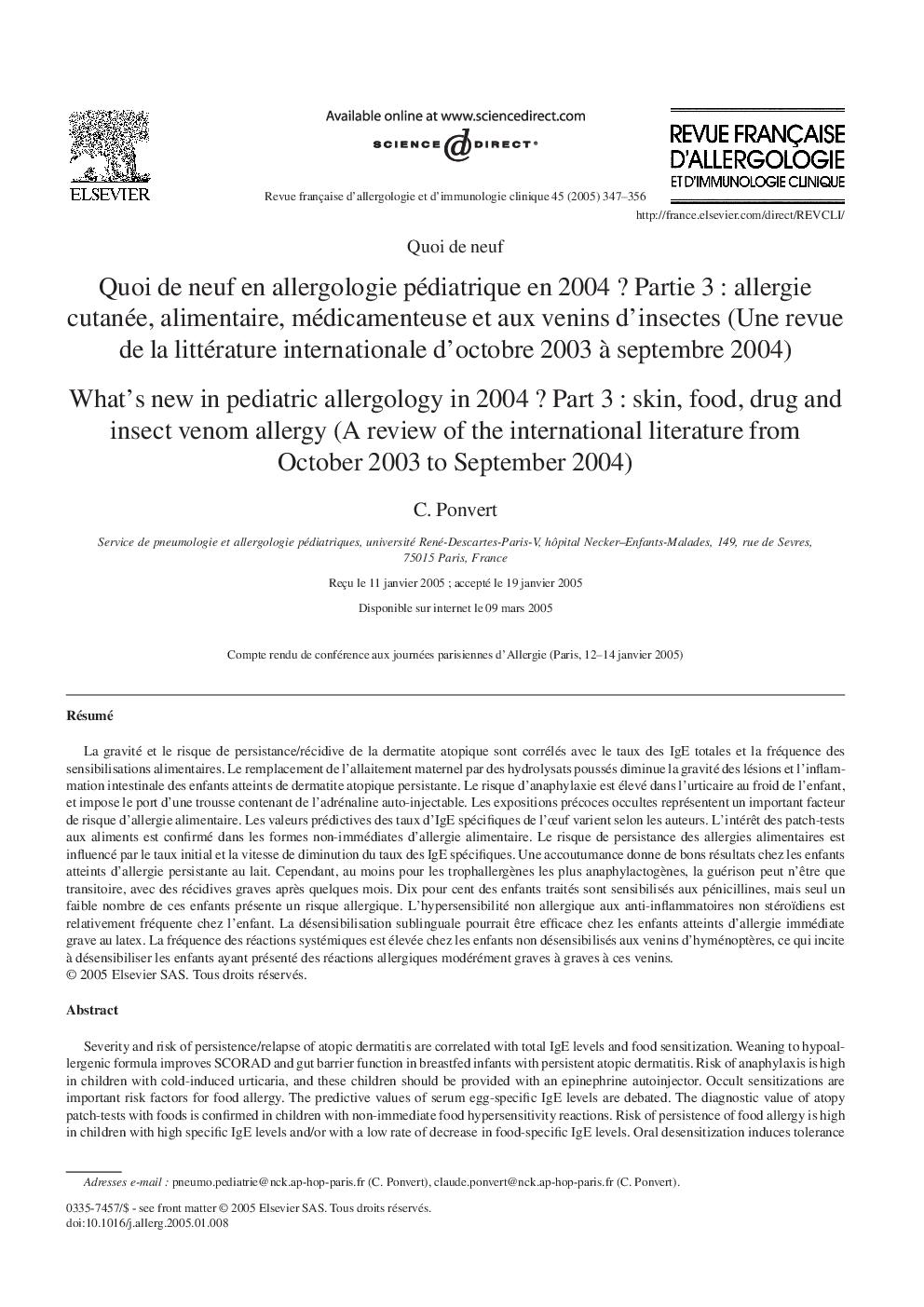| کد مقاله | کد نشریه | سال انتشار | مقاله انگلیسی | نسخه تمام متن |
|---|---|---|---|---|
| 9100238 | 1151452 | 2005 | 10 صفحه PDF | دانلود رایگان |
عنوان انگلیسی مقاله ISI
Quoi de neuf en allergologie pédiatrique en 2004 ? Partie 3Â : allergie cutanée, alimentaire, médicamenteuse et aux venins d'insectes (Une revue de la littérature internationale d'octobre 2003 Ã septembre 2004)
دانلود مقاله + سفارش ترجمه
دانلود مقاله ISI انگلیسی
رایگان برای ایرانیان
کلمات کلیدی
موضوعات مرتبط
علوم پزشکی و سلامت
پزشکی و دندانپزشکی
بیهوشی و پزشکی درد
پیش نمایش صفحه اول مقاله

چکیده انگلیسی
Severity and risk of persistence/relapse of atopic dermatitis are correlated with total IgE levels and food sensitization. Weaning to hypoallergenic formula improves SCORAD and gut barrier function in breastfed infants with persistent atopic dermatitis. Risk of anaphylaxis is high in children with cold-induced urticaria, and these children should be provided with an epinephrine autoinjector. Occult sensitizations are important risk factors for food allergy. The predictive values of serum egg-specific IgE levels are debated. The diagnostic value of atopy patch-tests with foods is confirmed in children with non-immediate food hypersensitivity reactions. Risk of persistence of food allergy is high in children with high specific IgE levels and/or with a low rate of decrease in food-specific IgE levels. Oral desensitization induces tolerance in children with persistent cow's milk allergy, except for children with very high levels of specific IgE. However, tolerance to anaphylactogenic food may be temporary, with the occurence of severe relapses after a few months. Ten per cent of children treated with penicillins are sensitized to these antibiotics. However, only a few of these children are at risk of developing allergy to penicillins. Non allergic hypersensitivity to non steroidal anti-inflammatory drugs is frequent in children. Sublingual immunotherapy may be efficient in children with latex hypersensitivity. A clinically important number of non-hyposensitized children do not outgrow hymenoptera venom allergy. In contrast, venom immunotherapy leads to a significantly lower risk of systemic reaction to stings. Thus, children with moderate to severe allergic reactions to hymenoptera stings should receive specific immunotherapy.
ناشر
Database: Elsevier - ScienceDirect (ساینس دایرکت)
Journal: Revue Française d'Allergologie et d'Immunologie Clinique - Volume 45, Issue 4, June 2005, Pages 347-356
Journal: Revue Française d'Allergologie et d'Immunologie Clinique - Volume 45, Issue 4, June 2005, Pages 347-356
نویسندگان
C. Ponvert,